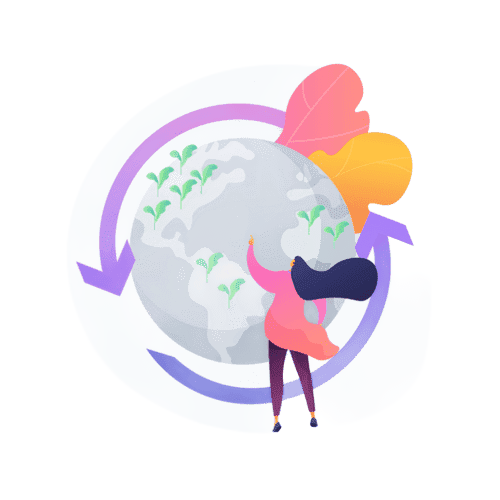Sustainability in Supply Chain Management
Sustainable supply chain management integrates environmental and social considerations into operations, reducing negative impacts while enhancing business performance. It involves tools like supplier codes, audits, and collaboration, with companies such as Unilever, Coca-Cola, and IKEA leading by example. This approach is vital for mitigating risks and achieving long-term profitability.

Sustainability has become an essential aspect of modern business strategies, and supply chain management is a critical area where sustainability can be implemented to create more efficient, responsible, and future-proof operations. The growing awareness of environmental degradation, resource scarcity, and climate change has driven corporations to reevaluate how their supply chains contribute to their overall sustainability objectives. As Richard M. Kashmanian and Justin R. Moore highlight, companies are facing increasing pressure to reduce their environmental footprints not only within their operations but also across their entire supply chains.
Supply chains represent a significant proportion of the environmental impact of many companies, particularly in industries with complex, globalized networks. The intricacy and span of these supply chains often present challenges in terms of transparency, traceability, and risk management. However, they also offer numerous opportunities for positive change. Sustainable supply chain management involves integrating environmental and social considerations into supply chain operations to reduce their negative impact while also improving business performance. This essay will explore various facets of sustainability in supply chains, including its challenges, importance, tools, strategies, and the role of third-party organizations in fostering sustainability.
The Importance of Sustainability in Supply Chains
A company’s supply chain is a significant factor in its overall environmental performance. As Kashmanian and Moore point out, disruptions in supply chains – such as plant closures, shortages of key resources, or quality issues – can significantly impact a company’s operations, from production to employment and profitability. Beyond operational efficiency, stakeholders, including consumers, governments, and investors, are increasingly holding companies accountable for the environmental and social practices within their supply chains.
Sustainability in supply chains is crucial for several reasons:
1. Risk Management
Incorporating sustainability helps companies mitigate risks related to environmental regulations, resource scarcity, and reputational damage. For example, McDonald’s has highlighted the importance of sustainability in its beef supply chain, recognizing that a significant portion of its environmental footprint, including greenhouse gas emissions, is tied to livestock production (Starr, 2013). Ensuring responsible practices in their supply chains mitigates risks of supply disruptions and reputational damage.
2. Brand and Consumer Expectations
Consumers increasingly demand transparency and ethical practices from the companies they support. Brands such as Patagonia emphasize that the actions of their suppliers reflect on the company’s reputation, and therefore, it is crucial that suppliers meet the company’s environmental and social standards (Patagonia, n.d.).
3. Regulatory Compliance
Governments around the world are enacting stricter environmental regulations. Compliance with these regulations often necessitates that companies ensure sustainability practices are adhered to throughout their supply chains, not just within their own operations. For example, the United States Lacey Act prohibits the trade of illegally harvested forest products, which forces companies to trace and ensure the legality of timber products in their supply chain.
4. Long-term Profitability
Sustainable supply chain practices often lead to cost savings and increased efficiency. This includes reducing energy consumption, waste, and the use of hazardous materials. Companies like Unilever have set ambitious goals to double their sales by 2020 while reducing their environmental impact by 50%, recognizing that sustainability is key to achieving profitable growth.
Challenges in Building Sustainable Supply Chains
While the benefits of sustainable supply chains are clear, achieving them presents numerous challenges. According to Kashmanian and Moore (2014), while many CEOs recognize the importance of sustainability, only a small percentage believe their companies have effectively integrated sustainability into their supply chains.
1. Complexity of Supply Chains
Global supply chains are often highly complex, involving multiple tiers of suppliers spread across different regions. Each tier adds a layer of complexity, making it difficult to track environmental and social practices. For instance, companies like McDonald’s and Coca-Cola, which have extensive agricultural supply chains, often struggle to ensure that sustainability practices are implemented at the farm level, where the bulk of environmental impact occurs.
2. Lack of Visibility and Traceability
Many companies lack full visibility into their supply chains, especially beyond their immediate (tier 1) suppliers. Without full traceability, it is difficult to ensure that suppliers, especially those at the base of the supply chain, adhere to environmental and social standards. For example, the Water Footprint Network found that 99% of Coca-Cola’s water footprint was linked to its agricultural supply chain, particularly the cultivation of sugar.
3. Costs of Implementation
Sustainable supply chain practices often require significant upfront investment in terms of new technologies, systems, and processes. Small suppliers, in particular, may lack the financial resources to implement sustainable practices, even if they are willing to do so. Moreover, companies must balance the costs of sustainability initiatives with the need to remain competitive on pricing.
4. Supplier Engagement
Engaging suppliers in sustainability efforts is challenging, particularly when they operate in countries with weaker environmental regulations or different cultural attitudes towards sustainability. Suppliers may also have conflicting priorities, focusing more on cost reduction and productivity than on environmental or social issues. Therefore, fostering a shared commitment to sustainability across all supply chain participants can be difficult.
Tools and Strategies for Sustainable Supply Chains
Despite these challenges, many companies are adopting tools and strategies to improve sustainability in their supply chains. Kashmanian and Moore discuss several approaches, such as supplier codes of conduct, supplier audits, and performance scorecards, which can help companies engage with their suppliers and monitor their sustainability performance.
1. Supplier Codes of Conduct
Supplier codes of conduct outline a company’s expectations for its suppliers in terms of environmental, social, and ethical standards. These codes are often used to communicate the company’s commitment to sustainability and ensure that suppliers align with its values. Companies like McDonald’s, Coca-Cola, and Patagonia have implemented supplier codes of conduct that extend beyond their direct suppliers to include subtier suppliers. For instance, McDonald’s requires its suppliers to hold their entire supply chain to the same sustainability standards outlined in its supplier code of conduct.
2. Auditing and Monitoring
Auditing suppliers is another common practice used to ensure compliance with sustainability standards. Audits can be conducted internally or by third-party organizations and provide companies with insights into their suppliers’ practices. VF Corporation, for example, conducts environmental and social audits of its tier 1 and some tier 2 suppliers to ensure they are meeting sustainability expectations.
3. Supplier Performance Scorecards
Supplier performance scorecards are used to evaluate and track suppliers’ sustainability performance over time. These scorecards can include metrics such as energy usage, water consumption, waste generation, and greenhouse gas emissions. McDonald’s uses an environmental scorecard to encourage its suppliers to reduce their environmental impact, with data submitted into a software system for regular monitoring.
4. Collaboration and Capacity Building
In addition to monitoring, companies can play a proactive role in helping suppliers improve their sustainability performance. This can include offering technical assistance, providing training, or facilitating knowledge-sharing between suppliers. For instance, Coca-Cola has developed its “Pass-It-Back” program, which rewards suppliers who demonstrate strong sustainability performance with reduced audit frequency.
5. Certification Programs
Certification programs provide third-party verification that suppliers are meeting specific sustainability standards. Certification can improve the credibility of sustainability claims and offer transparency to consumers and stakeholders. Examples of certification schemes include the Forest Stewardship Council (FSC) for timber products, the Roundtable on Sustainable Palm Oil (RSPO) for palm oil, and the Rainforest Alliance for agricultural products. These certifications help companies ensure that their suppliers are adhering to best practices in environmental and social responsibility.
The Role of Third-Party Organizations
Third-party organizations play a critical role in promoting sustainability in supply chains. They provide companies with the tools, frameworks, and guidance necessary to improve supplier performance and ensure compliance with sustainability standards. Kashmanian and Moore list several key organizations involved in this space, such as the Better Cotton Initiative (BCI), Bonsucro, and the Sustainable Apparel Coalition (SAC).
These organizations help in various ways:
1. Setting Standards
Many third-party organizations are responsible for developing sector-specific sustainability standards. For example, the Roundtable on Sustainable Palm Oil (RSPO) has established standards for sustainable palm oil production that companies like Mars and McDonald’s require their suppliers to adhere to.
2. Auditing and Certification
Organizations such as Bonsucro and the FSC offer certification programs that provide independent verification of a supplier’s compliance with sustainability standards. Certification helps companies ensure their suppliers are operating in an environmentally and socially responsible manner, while also offering transparency to stakeholders.
3. Information Sharing and Capacity Building
Third-party organizations often create networks for companies and suppliers to share best practices and collaborate on sustainability initiatives. For example, the Sustainable Apparel Coalition (SAC) brings together apparel and footwear companies to collectively improve supply chain sustainability through the development of tools like the Higg Index, which measures the environmental and social performance of products.
4. Encouraging Traceability
Many third-party organizations work with companies to improve the traceability of materials through their supply chains. This is particularly important for industries like food and apparel, where raw materials are often sourced from distant locations with varying sustainability standards. For example, the Rainforest Alliance works with companies to trace agricultural products, such as coffee and cocoa, back to the farm level.
Case Studies of Companies with Sustainable Supply Chains
Several companies have been recognized for their efforts to create more sustainable supply chains. Their experiences offer valuable lessons on how to successfully integrate sustainability into supply chain operations.
Unilever
Unilever has been a pioneer in supply chain sustainability. The company launched its Sustainable Living Plan in 2010, setting ambitious goals to halve the environmental impact of its products by 2020 while doubling its sales. A key part of this plan involves working with suppliers to ensure they adopt sustainable practices. By 2013, Unilever had already sourced 36% of its agricultural raw materials from sustainable sources, with a target of 100% by 2020. Unilever’s approach includes supplier audits, performance scorecards, and a strong emphasis on collaboration and capacity building with its suppliers.
IKEA
IKEA has also made significant strides in creating a sustainable supply chain. The company has set goals to source 100% of its cotton and wood from preferred and certified sources by 2020. In addition, IKEA aims to improve energy efficiency across its supply chain by 20% by 2020. IKEA uses a product sustainability scorecard to track the environmental performance of its suppliers and offers financial support and training to help them improve.
Coca-Cola
Coca-Cola has focused on addressing sustainability issues in its agricultural supply chain, particularly in terms of water usage and sugar sourcing. The company worked with the Water Footprint Network to determine that 99% of the water footprint of its products is embedded in the agricultural supply chain. As a result, Coca-Cola has made sustainable agriculture a priority, developing a set of Sustainable Agriculture Guiding Principles that apply to its suppliers of agricultural ingredients.
Conclusion
Sustainability in supply chains is no longer an option but a necessity for companies looking to remain competitive and responsible in today’s global market. Building a sustainable supply chain requires a multifaceted approach, involving the use of tools such as supplier codes of conduct, performance audits, certification programs, and collaboration with third-party organizations. Despite the challenges, companies that embrace sustainability in their supply chains can expect long-term benefits in terms of risk management, regulatory compliance, customer loyalty, and operational efficiency.
As the examples of Unilever, IKEA, and Coca-Cola illustrate, achieving supply chain sustainability is a gradual process that requires commitment, collaboration, and continuous improvement. Moving forward, companies will need to invest in traceability, transparency, and supplier engagement to ensure their supply chains are not only economically viable but also environmentally and socially responsible.
References
- Kashmanian, R. M., & Moore, J. R. Building greater sustainability in supply chains. Environmental Quality Management, 24(1), 13-36
- Coca-Cola. Sustainability in our supply chain.
- Unilever. Unilever sustainable living plan.
- McDonald’s. Supplier code of conduct.
- Patagonia. Corporate responsibility.
Wanna know more? Let's dive in!
[dsm_gradient_text gradient_text="The Cobot Conundrum: How AI is Rewriting the Rules of Robot Safety in the Age of Recycling" _builder_version="4.27.5" _module_preset="default" header_font="Questrial|||on|||||" header_text_align="center" header_letter_spacing="5px"...
Newsletter 2
[dsm_gradient_text gradient_text="Ms Matter Newsletter 2026 #1" _builder_version="4.27.4" _module_preset="default" header_font="Questrial|||on|||||" header_text_align="center" header_font_size="36px" header_letter_spacing="5px" filter_hue_rotate="100deg"...
Your AI Ready for the Future? Inside the New AI Maturity Model
[dsm_gradient_text gradient_text="Your AI Ready for the Future? Inside the New AI Maturity Model" _builder_version="4.27.0" _module_preset="default" header_font="Questrial|||on|||||" header_text_align="center" header_letter_spacing="5px" filter_hue_rotate="100deg"...
Cooling the Future: How AI Makes Data Centers Greener
[dsm_gradient_text gradient_text="Cooling the Future: How AI Makes Data Centers Greener" _builder_version="4.27.0" _module_preset="default" header_font="Questrial|||on|||||" header_text_align="center" header_letter_spacing="5px" filter_hue_rotate="100deg"...
When Cars Became Code: How AI is Redefining Automotive Production
[dsm_gradient_text gradient_text="When Cars Became Code: How AI is Redefining Automotive Production" _builder_version="4.27.0" _module_preset="default" header_font="Questrial|||on|||||" header_text_align="center" header_letter_spacing="5px" filter_hue_rotate="100deg"...
Supercharged Smarts: How AI Is Rewiring Electric Vehicle Batteries
[dsm_gradient_text gradient_text="Supercharged Smarts: How AI Is Rewiring Electric Vehicle Batteries" _builder_version="4.27.0" _module_preset="default" header_font="Questrial|||on|||||" header_text_align="center" header_letter_spacing="5px" filter_hue_rotate="100deg"...
New Zealand 2025
Duration: 2 weeks Cities: Christchurch, Hokitika, Kaikōura, Westport, Te Waipounamu, Nelson, Timaru Miles Travelled: 30 000Traveling through parts of New Zealand’s South Island offers a rich tapestry of history, landscape, and local character that leaves a quiet...
Resolving Die Peel Issues in an Automotive & Aerospace Electronics Manufacturing Plant
Background A global electronics manufacturer supplying critical components to the automotive and aerospace industries received multiple customer complaints regarding the premature failure of transistor-based power modules. Field analysis revealed that the root cause...
Transforming a Dysfunctional Quality Team in Automotive and Aerospace Manufacturing
Background The quality department of a Tier-1 manufacturer in the automotive and aerospace sectors was expected to ensure strict compliance to both customer and regulatory standards. Instead, it became a bottleneck plagued by poor collaboration, low morale, and high...
Resolving Customer Complaints Related to Electrical Connector Module Failures
Background ElectroTech, a manufacturer of electrical distribution components, including connector modules for power systems, received a major customer complaint regarding intermittent connection failures in one of its core electric product lines. The failures led to...
Singapore 2019
Duration: 3 days Cities: Singapore Miles Travelled: 6,300Visiting Singapore was like stepping into the future while still being surrounded by rich history and culture. From the moment I arrived at Changi Airport, with its indoor waterfalls and lush gardens, I knew...
Hawaii 2015
Duration: 2 weeks Cities: Honolulu Miles Travelled: 7,000Our trip to Hawaii was truly a once-in-a-lifetime experience, filled with breathtaking landscapes, warm hospitality, and unforgettable moments. We stayed in Honolulu on the island of Oahu, where the vibrant mix...










